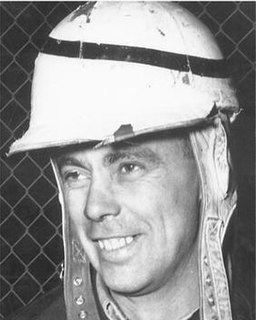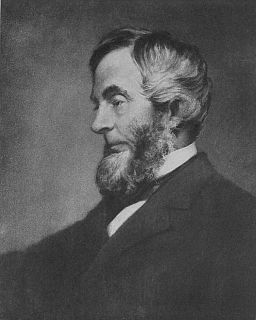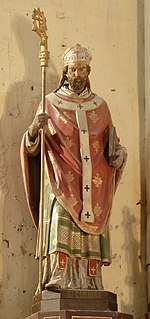A Quote by Mahatma Gandhi
As a splendid palace deserted by its inmates looks like a ruin, so does a man without character, all his material belongings notwithstanding.
Related Quotes
A man's character is like his house. If he tears boards off his house and burns them to keep himself warm and comfortable, his house soon becomes a ruin. If he tells lies to be able to do the things he shouldn't do but wants to, his character will soon become a ruin. A man with a ruined character is a shame on the face of the earth.
Notwithstanding the trouble, notwithstanding the argument, notwithstanding the increasingly heavy hand of government, notwithstanding the spirit of arrogance we so often display, notwithstanding the growing tide of pornography and permissiveness, notwithstanding occasional corruption in public office and betrayal of sacred trust-I marvel at the miracle of America.
A mediocre man copying nature will never produce a work of art, because he really looks without seeing, and though he may have noted each detail minutely, the result will be flat and without character... the artist on the contrary, sees; that is to say, his eye, grafted on his heart, reads deeply into the bosom of nature.
The superior man, when resting in safety, does not forget that danger may come. When in a state of security he does not forget the possibility of ruin. When all is orderly, he does not forget that disorder may come. Thus his person is not endangered, and his States and all their clans are preserved.
He was a foe without hate; a friend without treachery; a soldier without cruelty; a victor without oppression, and a victim without murmuring. He was a public officer without vices; a private citizen without wrong; a neighbor without reproach; a Christian without hypocrisy, and a man without guile. He was a Caesar, without his ambition; Frederick, without his tyranny; Napoleon, without his selfishness, and Washington, without his reward.
The nobler sort of man emphasizes the good qualities in others, and does not accentuate the bad. The inferior does the reverse. . . . The nobler sort of man pays special attention to nine points. He is anxious to see clearly, to hear distinctly, to be kindly in his looks, respectful in his demeanor, conscientious in his speech, earnest in his affairs. When in doubt, he is careful to inquire; when in anger, he thinks of the consequences; when offered an opportunity for gain, he thinks only of his duty.
If we want to understand the actions of a man in the early 1860's, put yourself back there in his shoes. As a young man he began piloting steamboats on the Mississippi, a job he loved and wanted to do the rest of his life, he said. The Civil War ended traffic on the River and his job. He wrote about it in A History of A Campaign That Failed. He said: "I joined the Confederacy, served for two weeks, deserted, and the Confederacy fell." His attachment to the Southern ideal of slavery does not appear very sturdy.







































